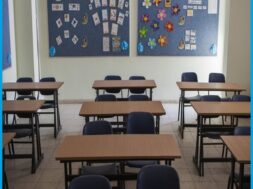
World Bank Education Director Caution against “Learning Poverty” in Keeping Schools Closed
Manas Dasgupta
NEW DELHI, Jan 16: Even as many scientists warned that Omicron may not be the last version of Coronavirus and the future version need not be equally milder, the World Bank’s Global Education Director Jaime Saavedra has advised against keeping the schools closed causing loss in education.
“There is no justification now for keeping schools closed in view of the pandemic and even if there are new waves, closing schools should be the last resort,” Saavedra said.
Saavedra, whose team has been tracking the impact of Covid on the education sector, says there is no evidence that reopening schools has caused a surge in Corona cases and that schools are not a “safe place.” He also asserted that it does not make sense from a public-policy perspective to wait till children are vaccinated as there is “no science” behind it.
“There is no relation between opening schools and spread of coronavirus. There is no evidence linking the two and there is no justification now to keep the schools closed. Even if there are new waves of COVID-19, closing schools should be the last resort,” Saavedra said. “It does not make sense to keep restaurants, bars and shopping malls open and keep schools closed. There is no excuse,” he added.
According to various simulations by the World Bank, health risks for children if schools are opened are low and the cost of the closure is extremely high. “During 2020, we were navigating in a sea of ignorance. We just didn’t know what is the best way of combating the pandemic and the immediate reaction of most countries in the world was let’s close schools. Time has passed since then and with evidence coming in from late 2020 and 2021, we have had several waves and there are several countries which have opened schools,” he said.
“We have been able to see if schools opening has had an impact in the transmission of the virus and new data shows it doesn’t. Many counties have also had waves when schools were closed so obviously there has been no role of schools in some of the spikes. “Even if the kids can get infected and with the Omicron is happening even more but fatalities and serious illness among children are extremely rare. The risks for children are low and costs are extremely high,” he added.
Asked about the concerns of children not being vaccinated yet, he said, “There is no country which has put the condition of reopening schools only after children are vaccinated. Because there is no science behind it and it does not make sense from a public policy perspective.”
Talking about the impact of school closures due to the pandemic in India, Saavedra said the “impact is more severe than previously thought” and the learning poverty is likely to increase much more than anticipated. Learning poverty means being unable to read and understand a simple text by the age of 10.
“The learning poverty in India is expected to increase from 55 per cent to 70 per cent due to learning loss and more out-of-school children. Learning adjusted years of schooling is estimated to fall almost one full year of schooling while the average annual earnings might shrink in a pessimistic scenario by nine per cent per student in future.
“In countries like India where the inequalities in education were already prevalent before the pandemic and the learning poverty levels were already gigantic, there is a lot at stake. Nearly two years later, schools remain closed for millions of children, and others may never return to school. “The loss of learning that many children are experiencing is morally unacceptable. And the potential increase of learning poverty might have a devastating impact on future productivity, earnings, and well-being for this generation of children and youth, their families, and the world’s economies,” he said.
Scientists, however, warned that Omicron’s rapid spread practically ensure that it would not be the last version and may mutate for a yet stronger virus in future. “The faster Omicron spreads, the more opportunities there are for mutation, potentially leading to more variants,” Leonardo Martinez, an infectious disease epidemiologist at Boston University, said.
Since it emerged in mid-November, Omicron has raced across the globe like fire through dry grass. Research shows the variant is at least twice as contagious as delta and at least four times as contagious as the original version of the virus.
Along with keeping comparatively healthy people out of work and school, the ease with which the variant spreads increases the odds the virus will infect and linger inside people with weakened immune systems – giving it more time to develop potent mutations.













